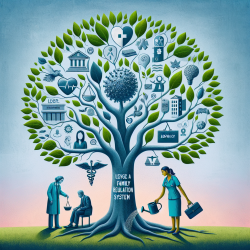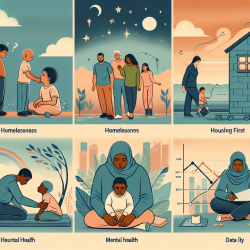Medical-Legal Partnerships (MLPs) are collaborative initiatives that bring together medical professionals, legal experts, and social workers to address the multifaceted needs of families. The study underscores the potential of MLPs to dismantle systemic injustices and improve outcomes for families, particularly those of color, who are disproportionately affected by the family regulation system.
Here are some actionable steps practitioners can take based on the research findings:
- Embrace Interdisciplinary Collaboration: Integrate legal services into your practice to address social determinants of health. This approach can help families navigate legal issues related to housing, benefits, and more.
- Focus on Prevention: Use preventive legal advocacy to support families before issues escalate to child welfare investigations. Early intervention can significantly reduce the risk of family separation.
- Enhance Training: Train medical staff on the benefits of MLPs and how to identify legal issues that may impact family well-being. This can empower them to make timely referrals to legal partners.
- Advocate for Policy Change: Use your platform to advocate for systemic changes that support family autonomy and reduce racial disproportionality in the child welfare system.
By implementing these strategies, practitioners can create a more supportive and equitable environment for families. MLPs offer a transformational opportunity to reframe how children and families receive services, address social determinants of health, and create anti-racist systems that support family autonomy and engagement.
To read the original research paper, please follow this link: The Family Regulation System and Medical-Legal Partnerships.










